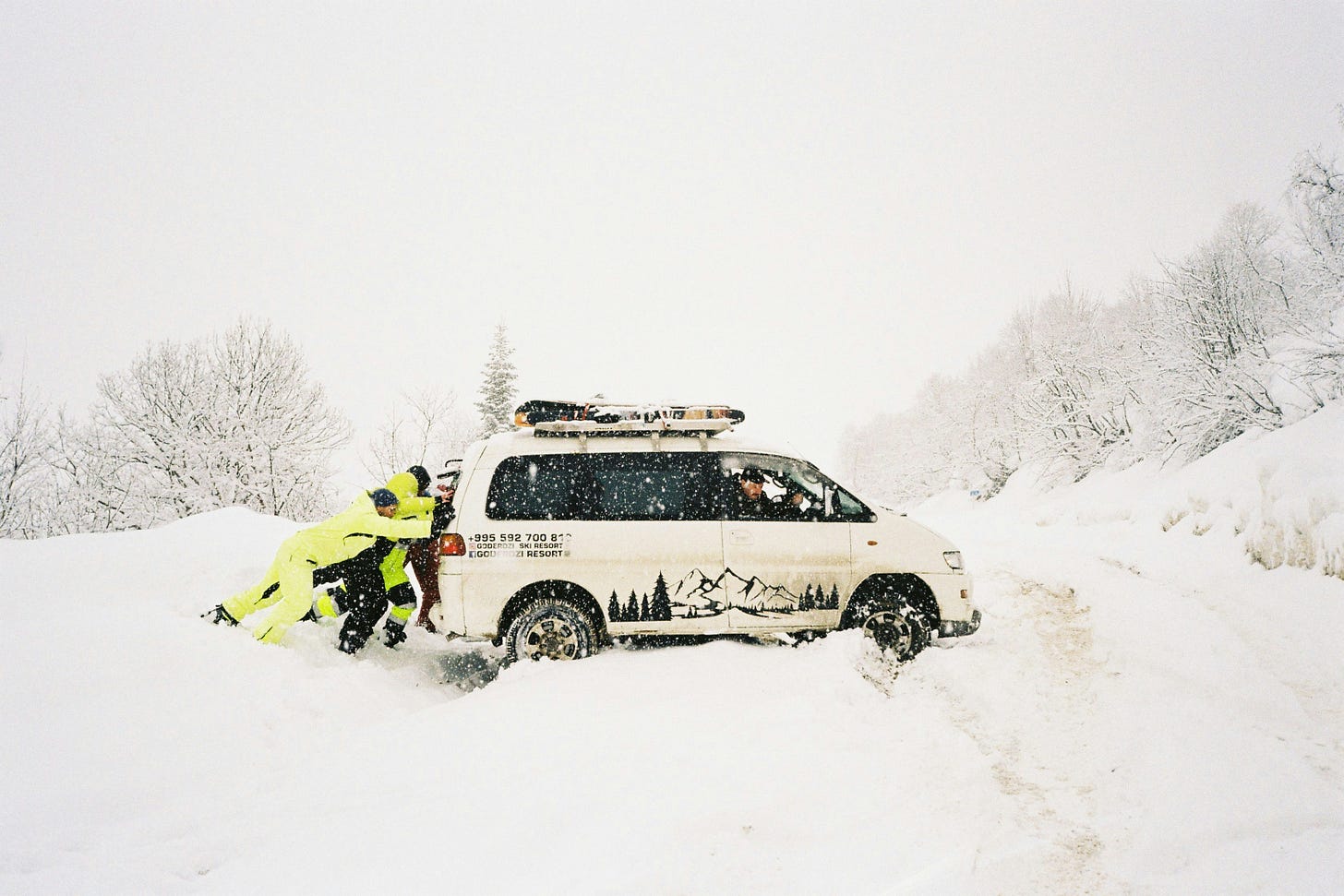SURPRISE—this week’s forecast predicted a major snowstorm sweeping through the South. This hasn’t happened for at least a decade. Some dismissed it as unlikely, others braced themselves for its arrival, and a few eagerly anticipated the snowfall. For me, snow evokes mixed emotions. Seventeen years ago, a near-fatal car accident during a storm of snow and freezing rain altered the course of my life, leaving an imprint that lingers to this day.

In the early years of my accident recovery, even the sight of a cloudy sky triggered intense fear, instantly transporting me back to the accident. I had been trapped in my car for five and a half hours, facing oncoming traffic as temperatures hovered at 27 degrees. The biting cold seeped into my bones, amplifying the physical pain and fear that gripped me. The arrival of bad weather—or sometimes just the thought of it—became a powerful reminder of that moment when I was quite literally frozen in place, helpless and hurting. I remained in that frozenness until I learned to embrace gratitude.
Today, the snow began to fall, delicate flakes drifting from the sky, and as I gazed out the window, a sense of wonder stirred within me. The trees stood gracefully, draped in this late February gift—a reminder of nature’s quiet generosity. Through the years, my perspective has shifted. No longer does fear hold me captive. Instead, I stand in reverence, honoring the echoes of where I once stood and embracing the strength of who I’ve become.
My days now begin with gratitude, a practice I started after the accident. Seventeen years ago, gratitude was still a lesson I needed to learn—a seed planted in my heart that has since blossomed into a daily practice. This practice is more than a habit; it is a sacred extension of my faith and spirituality. Each morning, as I open my eyes to a new day, I’m filled with profound gratitude for the gift of existence. I cherish the miracle of my senses, the warmth and comfort of my home, and the fullness of all that I have and all that I am. As my gaze drifts to the window, I take in the landscape—lush and green, now gently blanketed in snow. Each delicate flake whispers a reminder: just as no two snowflakes are alike, so too is each moment a unique blessing.
Feeling a desire to share my gratitude, I sent a text to my friend—a simple gesture that bridged the past and present, wrapped in appreciation for it all.
Gratitude doesn’t alter the events of your life—it transforms the way you see them. Seventeen years later, I can recognize that the accident, though a source of immense pain and fear, became a catalyst for profound growth and self-discovery. It set me on the path to becoming the person I am today. While I wouldn’t wish the pain on anyone, I know that without it, I wouldn’t have developed the depth of compassion and connection that now drives me to help others. –What I was experiencing is now called Post-traumatic growth.
American Psychological Association
Post-traumatic growth helps people find a new sense of personal strength and a new focus on helping others.
I used to keep lists, meticulously noting every area of my life that felt unfulfilling or devoid of purpose. At the time, I didn’t realize that what you focus on tends to expand—by dwelling on what I lacked, I attracted more of the same. It became clear that a shift in mindset was essential, transforming those lists from reminders of scarcity into catalysts for change. Today, my life is enriched with meaningful relationships and experiences that both support and challenge me, helping me grow into the best version of myself. Instead of fixating on what’s missing, I now embrace the abundance of connection, growth, and fulfillment that surrounds me.
Research on post-traumatic growth suggests that practicing gratitude may foster positive outcomes following trauma (APA PsycNet)1. Similarly, another study defines gratitude as the awareness and recognition of the value and significance of positive experiences, behaviors, or objects, accompanied by a sense of emotional connection to them (Adler & Fagley, 2005)2.
Together, these findings highlight the essential role gratitude plays in facilitating healing, fostering resilience, and supporting individuals as they move forward after trauma.
So let it snow! Instead of resisting what we cannot control, choose to welcome life’s unexpected moments with gratitude and joy. Each challenge holds the potential to shape us into stronger, more compassionate versions of ourselves. By embracing change with an open heart, we not only transform our own lives but also inspire others to do the same. Be the example of resilience, hope, and growth—because sometimes, all it takes is one person’s courage to help someone else discover their own strength.
How can you begin to cultivate gratitude in your life?
Try keeping a gratitude journal
List 3 things you are grateful for each day
Who are 3 people you are grateful for?
Challenge: if you are feeling difficult emotions, how can you feel grateful for those? What do they teach you about the moment?
Don’t be afraid to list everything!
I am grateful for my first cup of coffee.
I am grateful for the warmth in my home.
I am grateful to each of my readers and commenters






Dear Chellie; Everyday you inspire me, just by being. Your stories bring so much light into my life. I see the humanity and all we share together. Gratitude is indeed a common practice for us and one that reminds us how fortunate we are, and how rich our lives are. It gives up purpose. It shows the mark we leave and others have left in our worlds. I look forward to your stories every week. Thanks again for being in my world. Yocasta